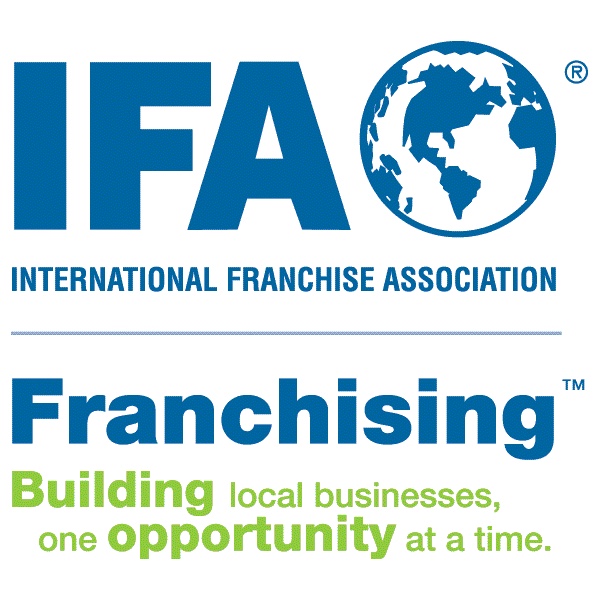Tools For Validating Your Franchise Search
The Real Power In Franchise Validation
There are many critical stages to researching a franchise and determining if it’s truly the right opportunity for you, but few are as valuable as a stage called validation. This article will explain what validation is and what questions to ask, but also how to really read between the lines, filter your responses and truly determine if a particular franchise is a model you can not only be successful with, but happy as well.
What is Validation?
Validation is simply the process of speaking with current (and even past) franchisees in a particular system to determine overall franchisee satisfaction and financial performance of a franchise. In a nutshell it’s a method used to check up on a franchise to determine if they are delivering on their promises, supporting their franchisees properly and are offering a truly viable and successful opportunity.
Filtering Your Responses
When you validate keep in mind you will not receive 100% satisfaction from every franchisee you speak with. No franchisor has a 100% satisfaction rate and all business owners have bad days at the office. You will too! Focus on the overall percentages of your feedback from everyone you speak with and rate the franchisor accordingly. Look for trends more than specific experiences to get a sense of overall franchisee satisfaction.
Sample questions for franchise companies
A part of your validation process will be to interview the franchise company. We have assembled some sample questions to assist you in your interview.
Sample questions for Franchisees
A part of your validation process will be to interview current franchisees at a company. We have assembled some sample questions to assist you in your interview.
Tip Sheet to review the FDD during validation
A part of your validation process will be to review the FDD. The FDD can be a very intimidating document.. here is a tip sheet for reviewing the FDD.
Discovery Day checklist for your visit
A part of your validation process will be to review the FDD. The FDD can be a very intimidating document.. here is a tip sheet for reviewing the FDD.
Funding Choices
Retirement Funds
If you have a 401(k) or other retirement fund, you can create a C corporation that can be used to buy stock in your new franchise business, thus funding it. Be aware that the IRS rules on this are under scrutiny, but companies specializing in this area have been around for years and have helped many franchisees get started.
Do it yourself
Do it yourself
Of course if you can afford the startup costs yourself, you don’t need a loan – although it can make good business sense, depending on your circumstances. For years, franchisees used their home equity and 401(k) retirement funds to start their new business. That option proved less viable after the subprime crisis. Many also turned to family and friends who believed in them, but many of their finances suffered too, reducing the likelihood of finding help there.
Home Equity Loans
For those whose homes have retained their value and who own or have a significant percentage of equity in their home, this time-tested source of business start-up funding is still a good alternative. You may have to go through more paperwork than you would have a few years ago, but you still can use your home as collateral – that is, if you’re willing.
Business partner or investor
Many new franchisees have the energy, drive, and skills to succeed, but lack the money to get started. If you’re one of these, consider pairing up with a money partner, angel investor, or even a venture capitalist interested in the brand or industry you’ve chosen. Your franchisor can be a big help here. Many good franchisors who turn down well-capitalized applicants with no operating or industry experience are willing to pair them up with an operator they’ve approved who lacks the startup capital.
Conventional lenders
Large banks, the traditional bulwark of small business loans, pulled back after the subprime debacle, making loans only to those who didn’t need them – no help for the many more who did. And traditional franchise industry lenders such as GE Capital and CIT pulled the plug on lending as well. In their stead, a series of alternative lenders entered the market in 2008 and 2009. Many will continue to fuel franchise expansion in years ahead. These include local and regional banks, credit unions.
Small Business Administration
The SBA will guarantee a significant portion of a loan, typically up to 80 percent. Note that the SBA does not make the loan, but guarantees a large percentage of it. In theory, this reduces the risk for bank lenders, making them more willing to lend to new businesses. And it worked well for years until the subprime loans hit the fan. In early 2009, Congress passed the American Recovery and Reinvestment Act, which allowed the SBA to raise its loan guarantee to as much as 90 percent and temporarily eliminate fees on others. For the most current information, visit the SBA’s website (www.sba.gov).
The Franchise Registry
Franchisors listed on the SBA’s Franchise Registry offer an advantage to their franchisees seeking SBA-backed loans. Loan applications for brands listed on the Registry can be processed more quickly by the SBA and its lenders (banks) because the SBA has pre-approved their franchise agreement. Listing on the Franchise Registry adds credibility to a brand in the eyes of any knowledgeable lender.
Loan packagers or specialists
Finance companies specializing in franchise-related loans can help you in the early stages by guiding you through the lending maze. These specialists know the ropes and have connections in the lending community. These “loan packagers” will work with you from start to finish to improve your chances of success. Best of all, most get paid only if your loan comes through.
Alternative funding sources
As the large franchise lenders pulled back, new and innovative lending companies specializing in franchising, even in selected brands or industry segments or niches, appeared to fill the gap. Rates may be slightly higher, but at least they’re making capital available. Many of these boutique lenders will stick around and become players.
Equipment leasing
As noted above, finding a source for funding your equipment purchase or lease will increase your chances of finding money for the rest of your new business. At the very least, it will reduce the amount you need from other lenders. Check with your franchisor to see if they have any deals with one or more equipment leasing and financing sources.
Landlords
Landlords
In a good economy, landlords charge high rents and tenants pay for everything. In a down economy, the reverse is true, and you can negotiate many items before signing a lease: tenant improvement allowances, free rent, or reduced rents if a mall’s anchor tenant moves out. Since you may be new to negotiating commercial leases, it’s often worthwhile to hire a professional lease negotiator, consultant, or commercial real estate broker to represent you. Some franchisors have specialists on staff who can help franchisees get the best deal. And always run any lease agreement by an attorney experienced in this area. The up-front fees will pay off each month for the life of your lease.
Veterans
Many programs exist for veterans of the U.S. Armed Forces. Under the SBA’s Patriot Express Pilot Loan Initiative, the SBA will guarantee up to 85 percent of the loan and requires lower credit scores for approval. These loans can be used for start-up, expansion, equipment purchases, working capital, inventory, or business-occupied real estate purchases. At the International Franchise Association (IFA), the VetFran program includes more than 300 franchisors that offer discounts and incentives to veterans on franchise fees and other startup expenses.
Minorities
The IFA also assists and encourages minority participation in franchising through the IFA Diversity Institute and MinorityFran. Many franchisors involved in these initiatives offer financial incentives to minority applicants, such as reduced or deferred franchise fees. The IFA, in collaboration with local economic development officials and national organizations, holds seminars across the country to increase the presence of minorities at all levels of franchising.










